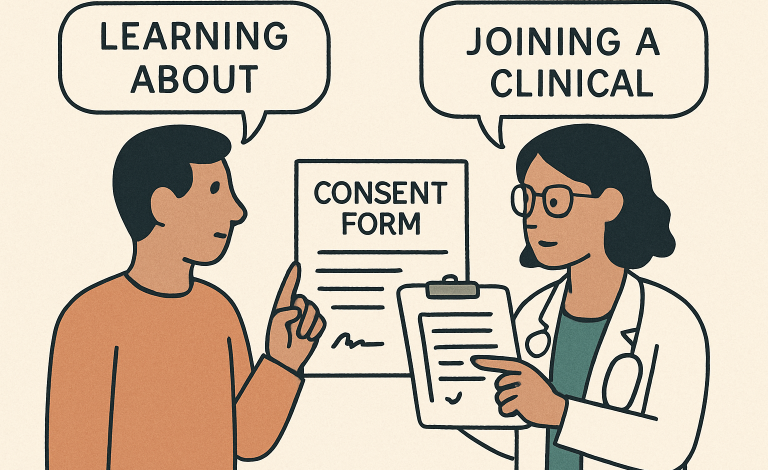Demystifying Clinical Trials: Weighing Pros, Cons, and Informed Participation

Table of Contents
- What Are Clinical Trials and Why Do They Matter
- The Journey From Lab to Patient: How Clinical Trials Advance Medicine
- Key Benefits for Participants and Society
- Understanding Potential Risks and How They’re Managed
- Making an Informed Choice: Essential Questions to Ask
- Ethical Oversight and Public Trust in Clinical Research
- Getting Started: Steps to Find and Join a Clinical Trial
- Why Clinical Trials Matter and How You Can Make a Difference
What Are Clinical Trials and Why Do They Matter?
Clinical trials are structured research studies designed to evaluate new medical treatments, drugs, devices, or procedures. These studies act as a bridge between early scientific discoveries in the lab and their application to patient care in real-world clinical settings. By voluntarily participating, individuals help researchers determine if an innovative therapy is effective, safe, and suitable for broader use. These trials matter because nearly every advancement in healthcare—from vaccines to cancer treatments—has relied on rigorous clinical research. Understanding the benefits and risks of clinical trials enables individuals to make informed decisions about potentially participating in the future of medicine, while ensuring that treatments are developed responsibly for those who need them most. Participating in a clinical trial also gives patients access to cutting-edge therapies that may not yet be widely available. Additionally, each contribution helps advance medical knowledge and can improve care for future patients.
The Journey From Lab to Patient: How Clinical Trials Advance Medicine
The path from scientific discovery to patient treatment is a lengthy and meticulous process. Before a medication or procedure is available to the public, it must undergo several phases of clinical trials. These studies start with small groups of participants in early phases (focusing on safety and dosage), expand to larger groups to evaluate effectiveness, and finally include thousands of volunteers to confirm results and monitor long-term side effects.
Each phase serves a distinct function: early phases test for safety, middle phases gauge efficacy, and later ones ensure both longevity and broad applicability. These overlapping phases mean it can take several years for a discovery to become widely available. Frequently asked questions about timelines, placebo use, and participant protection are addressed by trial organizers to foster understanding and transparency.
Key Benefits for Participants and Society
For many, participating in a clinical trial provides early access to cutting-edge therapies that might not be otherwise available. Participants often receive thorough medical care and careful monitoring throughout the study. On a broader scale, participating in a clinical trial has long-lasting societal benefits—advancing science, improving public health, and ultimately benefiting future generations. For conditions with no current cure, trials may offer new hope or alternatives.
Clinical trials have contributed to significant breakthroughs, including the development of new cancer therapies, advancements in managing chronic diseases, and the rapid development of COVID-19 vaccines.
Understanding Potential Risks and How They’re Managed
While the advantages of participating in trials can be significant, they come with potential risks, such as unforeseen side effects or less effective treatments. It’s important to know that every clinical trial is designed with rigorous protocols and oversight to protect volunteers. Risks are disclosed upfront, and participants are monitored closely throughout the study. Data safety monitoring boards regularly assess ongoing research and can stop a trial if unexpected hazards arise.
A key aspect of all trials is the process known as “informed consent,” where participants are fully informed about what the study entails, potential side effects, and their rights, including the right to withdraw at any time. According to WebMD, this process ensures that volunteers can make well-informed decisions about participating and fully understand both the benefits and risks of the study. Participation also contributes to scientific knowledge that may help future patients. Every volunteer plays a vital role in advancing medical research and improving healthcare outcomes.
Making an Informed Choice: Essential Questions to Ask
Deciding to join a clinical trial is a personal choice that should be made only after careful consideration. Here’s a checklist of essential questions to ask before enrolling:
- What is the purpose and goal of this study?
- What are the potential benefits and risks to me personally?
- Are there alternative treatments available?
- What will my responsibilities be during the trial?
- Will I incur any costs, or will expenses be covered?
- How will my privacy and health information be protected?
You can access current and reliable information on ongoing trials through national registries. Consulting a trusted healthcare provider can also help you decide whether a particular trial is suitable for you.
Ethical Oversight and Public Trust in Clinical Research
Ethical oversight is at the core of every approved clinical trial. Institutional review boards—comprising doctors, scientists, and community members—review study protocols before trials commence to ensure the safety and rights of participants. These committees continue to monitor trials for compliance and participant well-being. The World Health Organization provides comprehensive guidance on clinical trials oversight, including training resources and regulatory standards, which help strengthen ethical review globally.
Transparency in reporting and results-sharing builds public trust. Recent updates from the NIH to enhance clinical trial reporting exemplify an ongoing commitment to transparency. Researchers must post their results on public registries, even if the findings are incomplete or negative, so that the community can learn from every study.
Getting Started: Steps to Find and Join a Clinical Trial
Simple Steps to Finding the Right Trial
Locating a legitimate clinical trial can be straightforward:
- Consult with your healthcare provider about options relevant to your condition and health status.
- Contact the research team listed to learn more and ask questions before applying.
Preparing for Participation
Before enrolling, please assess your availability and willingness to comply with study visits and follow-up appointments. Carefully review the informed consent document and consult your healthcare team to address any remaining questions. Understanding what to expect at every step will help you feel empowered and confident in your decision to participate.
Read Also: Why Businesses Need Logistics Technology: Spotlight on Warehouse Management Systems
Why Clinical Trials Matter and How You Can Make a Difference
Clinical trials are a cornerstone of medical progress, transforming laboratory discoveries into real-world treatments that save lives and improve health outcomes. Participation offers both personal benefits, such as early access to innovative therapies and attentive medical care, as well as societal advantages, including advancements in public health and scientific knowledge. While there are risks, stringent safety protocols, informed consent, and ethical oversight ensure that volunteers are protected throughout the process. By asking the right questions and working closely with healthcare providers, individuals can make well-informed decisions, contributing meaningfully to the development of treatments that shape the future of medicine.




